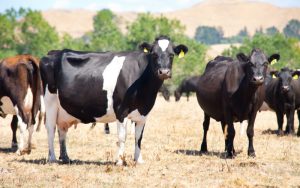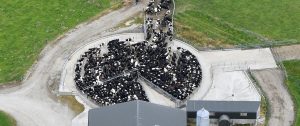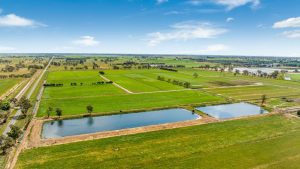
Bank of New Zealand (BNZ) has made a profit after tax of $1.5 billion for the 12 months to September 30, 2024, down $3 million on last year’s profit.
Chief executive Dan Huggins called the result solid.
While BNZ grew its deposits and loans, its margins narrowed, it costs rose, and it had lost an income stream through the sale of its wealth business.
The bank’s total lending rose $4.3b, or 4.2%, with business lending up $2b, or 4.6% and home lending up $2.4b or 4.1%, while total customer deposits increased by $3.8b, or 4.8%.
Huggins signalled there was mortgage relief ahead for homeowners, who had been struggling with high home loan interest rates.
“With inflation back within the Reserve Bank’s target band and as interest rates begin to fall, this will be welcome news for many households and businesses,” he said.
“However, there is always a lag between changes in monetary policy and its impact on the economy, and it will take some time for the benefits to flow through. For customers feeling under pressure our message is get in touch,” he said.
MPs have been holding a banking inquiry, frustrated at high bank profits and weak lending to productive industries like farmers.
Huggins is due to appear before the select committee on December 11. But he had a pointed message for MPs when he announced BNZ’s profit.
“In the 12 months to 30 September 2024, BNZ was the largest lender to New Zealand’s productive sector, with almost half of New Zealand’s total business and agri lending growth coming from BNZ,” he said.
However, like Westpac, Huggins may find himself having to justify different dairy emissions targets set for farmers in New Zealand and in Australia, where BNZ’s parent National Australia Bank is based.

Westpac has tougher emissions reduction targets for New Zealand dairy farmers than it has for Australian dairy farmers.
While BNZ has emissions reductions targets for New Zealand dairy farmers, the climate disclosure published by National Australia Bank on Thursday shows it has not set any targets for its Australian dairy farmers.
That document said Australia’s agri sector was important for jobs, GDP and exports, and provided high quality food. Decarbonisation would become critical for sustainability, it said, however: “This must be balanced with care for its role in regional communities and the domestic and global food supply”.
Huggins said BNZ set its own targets separately from NAB.
“When I talk to farmers … they see that actually the end customers globally, those people who are buying our products, that they want to see us taking action in this space,” he said.

“80% of exports are going to markets which have a mandatory or proposed climate disclosure scheme. Our farmers know that need to respond, and they want to to make sure that our businesses, our farms, remain sustainable, and that we continue to be able to have access to those markets,” he said.
He also said it was not only banks that set farmers emissions targets. Their customers, including Fonterra, did too.
Huggins was also keen to stress how many people had taken BNZ home loans to buy their first homes.
“Over the past 12 months, more than 6500 New Zealanders have chosen BNZ to help them into property ownership, with first home buyers representing around half of that figure,” Huggins said.
He acknowledged how hard times had been for many mortgage borrowers.
“Customers are paying close attention to interest rates, and we’ve seen a significant shift towards shorter fixed-term loans. Over 70% of our home loan customers are due to roll off their fixed term loans within the next 12 months,” he said.
However, data BNZ collects on customer satisfaction indicates it is close to overtaking Kiwibank as the most liked big bank in the country.
Despite that, Huggins acknowledged the bank had work do to to win over business banking customers. Despite being the second most-liked bank as measured by net promoter scores in the sector, more of its business banking customers were not classed as promoters of the bank, than were classified as promoters.
MPs have also shown interest in getting banks to lend more to develop Māori-owned land.
Huggins said BNZ launched and then expanded a new funding model which enabled iwi, as well as individuals and whānau in Māori land trusts and incorporations, to secure home loans for housing on Māori land at standard home loan interest rates.
“We’re proud that we’ve managed to develop a solution that can not only enable home ownership on whenua Māori, but also acknowledges and protects the deep connection Māori have with their whenua,” Huggins said.
You can now read the most important #news on #eDairyNews #Whatsapp channels!!!
🇺🇸 eDairy News INGLÊS: https://whatsapp.com/channel/0029VaKsjzGDTkJyIN6hcP1K























